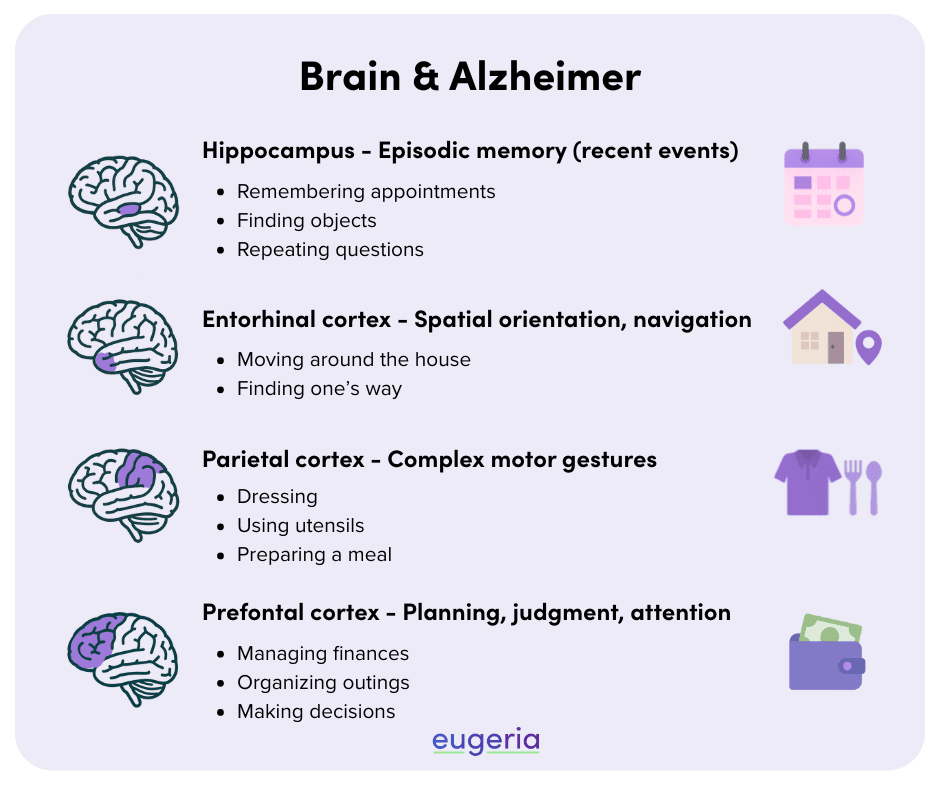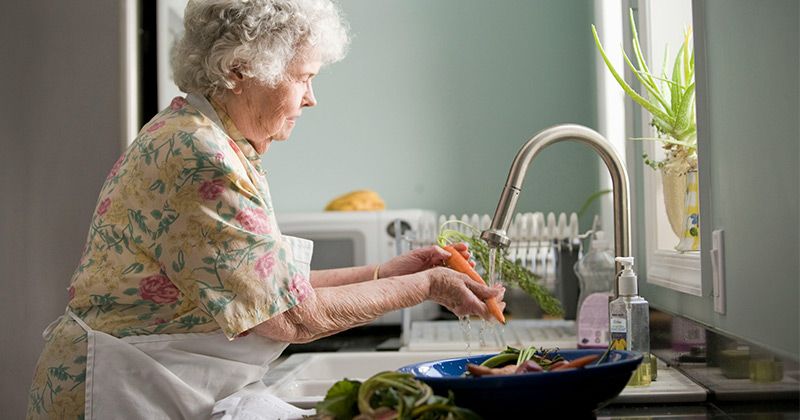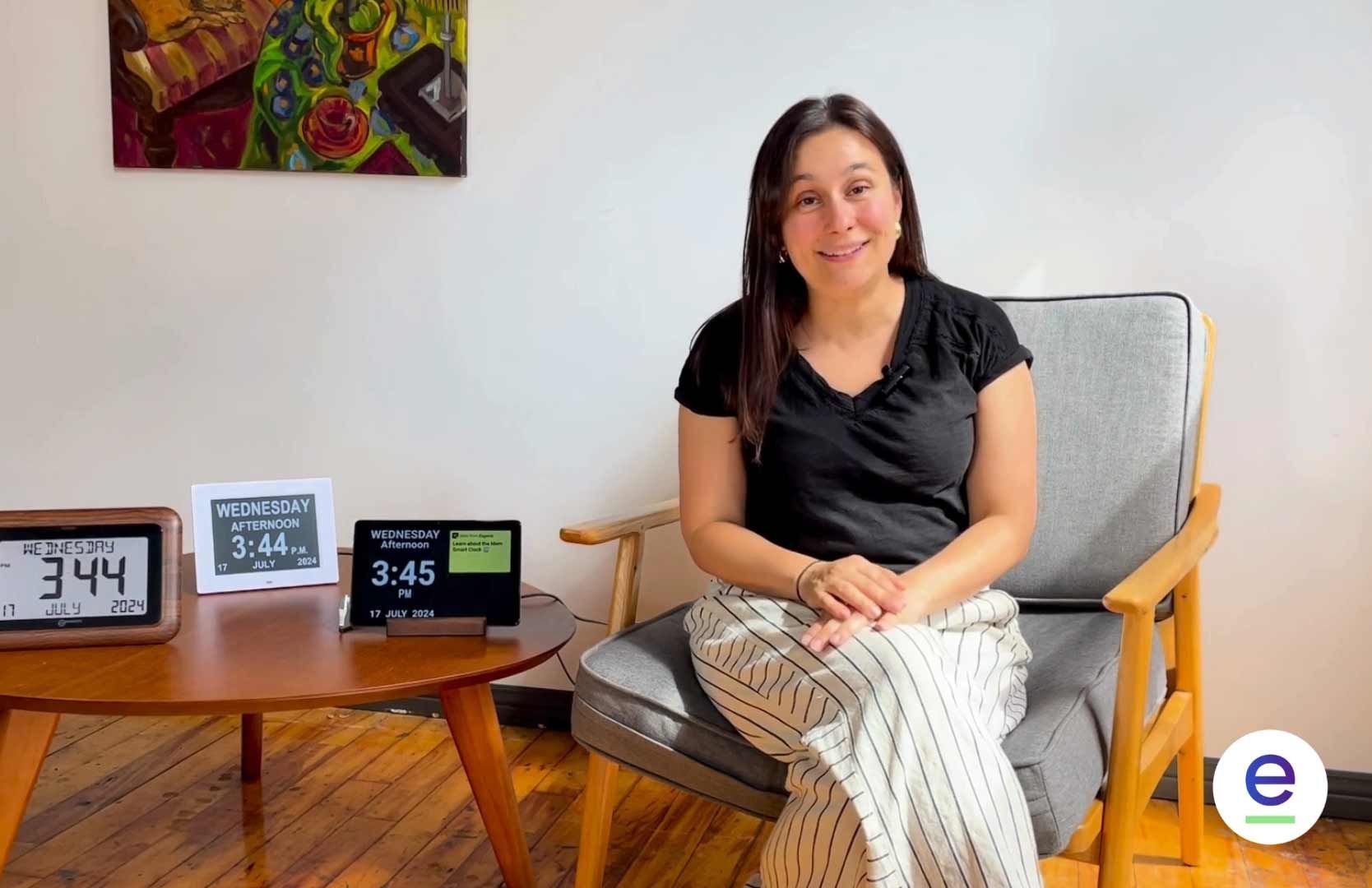This infographic offers a comprehensive overview of Activities of Daily Living (ADLs), which are essential self-care tasks crucial for maintaining independence and well-being. ADL include ba...

Understanding How Alzheimer’s Affects the Brain and What That Means Day to Day
When someone you love starts showing signs of Alzheimer’s, it’s easy to focus on what’s visible: memory loss, confusion, personality changes. What we see on the surface (memory lapses, confusion) starts with quiet, invisible changes inside the brain.
Alzheimer’s isn’t just about forgetfulness; it’s about how the brain processes information, makes decisions, stores memories, and even moves through space. Knowing what’s happening in the brain helps you better understand the ‘why’ behind your loved one’s behavior, and respond with patience and clarity.
Alzheimer’s and the brain: What’s happening?
Alzheimer’s disease is a progressive brain disorder. Over time, it damages and gradually leads to the loss of nerve cells (neurons), causing the brain to shrink. However, these changes don’t happen evenly; they begin in specific regions that affect certain functions.
Here are four of the most affected areas, and how changes in these areas impact everyday life for your loved one:

Hippocampus: Where new memories are made
The hippocampus is often one of the first regions affected by Alzheimer’s. It plays a central role in forming new memories and connecting them to meaning.
How this might show up day to day:
- Difficulty remembering recent conversations or events
- Trouble learning and retaining new information
- Forgetting what they did earlier in the day or where they placed something
What you might notice:
Your loved one might ask the same question multiple times, forget appointments, or have trouble remembering a visitor who came earlier in the day.
Entorhinal cortex: Navigating space and orientation
This region connects memory and orientation, helping your loved one understand where they are and how to get from one place to another.
How this might show up day to day:
- Difficulty finding their way around, even in familiar places
- Trouble recognizing where they are or how to return home
- Feeling disoriented, unsafe, or anxious while moving from place to place
What you might notice:
Even at home, your loved one might get lost or walk into the wrong room. They may feel disoriented on walks or become anxious in unfamiliar environments.
Parietal cortex: Understanding objects and performing tasks
The parietal cortex helps us recognize how objects work, how to use them, and how to move our bodies in complex ways.
How this might show up day to day:
- Difficulty using everyday objects like a toothbrush, a remote, or cutlery
- Trouble completing tasks that involve multiple steps, like making a sandwich
- Challenges getting dressed in the correct order or understanding how clothes should fit
What you might notice:
Your loved one might start avoiding tasks they used to do easily, like cooking or setting the table. You may notice more trial and error, or a tendency to pause mid-action, unsure of what comes next. Sometimes, what looks like apathy is uncertainty or fear of making a mistake.
Prefrontal cortex: Planning, judgment, and decision-making
This region is involved in organizing thoughts, making decisions, and managing time and attention.
How this might show up day to day:
- Difficulty making decisions or organizing daily activities
- Trouble managing time, money, or medication schedules
- Challenges staying focused or evaluating risks (e.g., kitchen safety, phone calls)
What you might notice:
Your loved one may become more impulsive or withdrawn. They might have difficulty following a conversation, fall for scams, or struggle with even small choices.
Why this matters: It’s not just memory, it’s how the world is experienced
Alzheimer’s changes how a person sees and interacts with the world. It can affect perception, emotions, attention, and communication. These changes can feel sudden or even hurtful, but they’re not intentional. They’re the result of real, progressive changes happening inside the brain.
The more we understand that, the more we can replace frustration with empathy and adapt our support accordingly.
💜 What you can do as a caregiver
You don’t need to know every region of the brain, but understanding just a few key areas can make a real difference in how you support your loved one. It can help you to:
- Recognize patterns in your loved one’s behavior
- Avoid blame, and reduce guilt or anger
- Respond with tools that match real needs
Here are a few tips and tools that can help:
1. Simplify routines
Create visual schedules or use clocks that show reminders. For example, the Idem Clock can display clear events like “Time to eat lunch” or a reminder like “Take your pills,” without adding unnecessary visual stress or confusion.
2. Create a calm, familiar environment
Repetition and routine reduce stress when navigation and memory are hard. Try to keep key items in consistent places and avoid clutter or unnecessary noise.
3. Offer tactile or sensory support
Tools like fidget widgets can help reduce anxiety and restlessness by keeping hands busy and minds soothed, especially in mid-to-late stages.
4. Focus on one step at a time
Break tasks into small, manageable steps. Be patient with mistakes, and try not to correct too often, as it can increase stress or shame.
You’re not alone.
Alzheimer’s changes how someone lives and how you support them. Even as things change, there are still ways to create moments of connection, reassurance, and calm.
At Eugeria, we’re here to help you navigate each stage with confidence, compassion, and real-world solutions that make a difference.
Resources:



